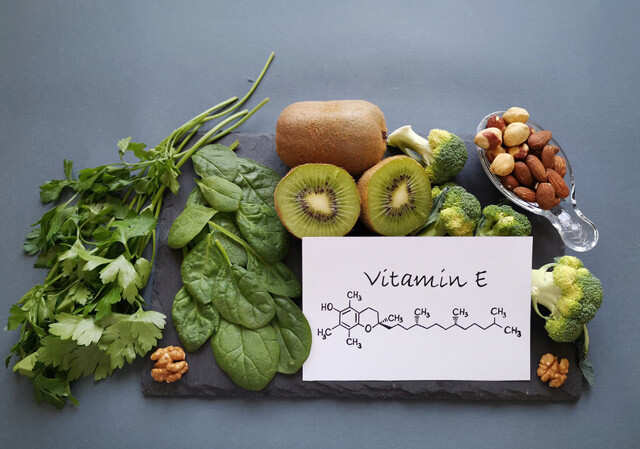Unlock the power of kiwi fruit benefits: boost skin health, aid digestion, and strengthen immunity, and more.
Kiwi fruit is native to China and was later introduced to New Zealand in the early 20th century. It gained popularity there before spreading to other parts of the world. The kiwi fruit has become a symbol of New Zealand, and New Zealanders are often called “Kiwis.” The fruit’s fuzzy brown exterior somewhat resembles the brown, fuzzy skin of the kiwi bird. Despite the similar name, the kiwi fruit is not named after the flightless bird native to New Zealand. It was originally known as the “Chinese gooseberry”.
While the most common variety of kiwi is green on the inside, there are also golden kiwis with yellow flesh. They have a slightly different taste, often described as sweeter than the green variety—also, kiwi fruit benefits females in several ways.
1. Promotes Skin Health

Kiwi fruit benefits for skin as it contains vitamin C, an essential nutrient for collagen synthesis. Collagen is crucial for maintaining skin elasticity and preventing wrinkles. The antioxidants in kiwi help protect the skin from oxidative stress, reducing the damage caused by free radicals.
2. Benefits Digestive Health

Kiwi contains dietary fiber, which aids in digestion and promotes regular bowel movements. It helps prevent constipation and supports a healthy digestive system. The fiber found in kiwis can retain water and swell more than other types of fibers, like apple fiber and wheat bran, which means it’s a good choice for improving stool consistency and decreasing the time it takes for food to go through your digestive system.
3. Helps Maintain Gut Health
Kiwi contains enzymes like actinidin, which can aid in the digestion of proteins. This may contribute to a healthy balance of gut bacteria. Kiwis also contain polyphenol compounds, like caffeic acid and chlorogenic acid, which exert anti-inflammatory effects in the gut and throughout the body.
4. Excellent Source Of Vitamin C
Vitamin C is essential for a healthy immune system. Kiwi provides a significant dose of this vitamin, helping the body defend against illnesses. Neutrophils are white blood cells that help protect against pathogens and infection. These cells accumulate high concentrations of vitamin C, which is thought to protect these cells and support their functioning.
Other older studies have also found that daily kiwi intake is effective for increasing vitamin C levels in the body.
5. Provides Vitamin E

Kiwi fruit contains a high amount of vitamin C and also contain other nutrients such as potassium, dietary fiber, vitamin E, and folate with nutritionally relevant levels. Vitamin E in kiwi acts as an antioxidant, protecting cells from damage. It contributes to overall skin and immune health.
6. Antioxidant Properties

Kiwi contains various antioxidants like flavonoids and carotenoids, which help neutralize free radicals, reducing oxidative stress in the body. Additionally, kiwis contain potassium, copper, vitamin K, folate, and vitamin E, a fat-soluble nutrient that has antioxidant effects.
7. Boost Immunity

It’s also involved in immune function and your body needs it to make collagen and neurotransmitters. The combination of vitamins C and E, along with other antioxidants, strengthens the immune system, helping the body fight off infections and illnesses.
8. Improved Metabolic Health

Kiwi is a nutrient-dense fruit with relatively low calories. Including kiwi fruit benefits in having a balanced diet and can support metabolic health and weight management.
9. Promotes Good Sleep

Kiwi contains serotonin precursors, which may contribute to improved sleep quality. Serotonin is a neurotransmitter associated with sleep regulation.
10. Reduces Hair Fall

The vitamins and minerals in kiwi, such as vitamin E and zinc, contribute to benefits of kiwi for skin and hair. health, potentially reducing hair fall and promoting stronger hair. The iron present in the fruit might promote blood circulation in the scalp; thereby, it might help to strengthen the hair from its roots and thus may give it proper nourishment.
11. Promotes Eye Health

Kiwi contains lutein and zeaxanthin, antioxidants that are beneficial for eye health. They may help protect against age-related macular degeneration.
12. Potential Asthma Treatment

Some studies suggest that the anti-inflammatory properties of kiwi may have a positive impact on respiratory health, potentially benefiting individuals with asthma.
13. Helps Regulate Blood Pressure

Kiwi is a good source of potassium, which plays a role in regulating blood pressure. Adequate potassium intake is linked to cardiovascular health. A study looked at the effects of eating either kiwis or apples in 118 people with either high normal blood pressure or stage one high blood pressure.
14. Includes Essential Fatty Acids

Kiwi seeds contain alpha-linolenic acid, an essential fatty acid that is beneficial for heart health and overall well-being. What’s more, some studies have shown that eating kiwis may help reduce total cholesterol and triglycerides and boost heart-protective HDL (good) cholesterol. Incorporating kiwi fruit can benefit in having a healthy lifestyle, but it’s important to maintain a varied and nutritious overall eating pattern for optimal well-being.
Source: Shutterstock